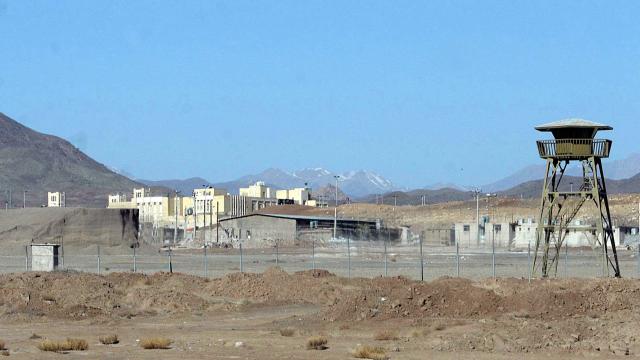It certainly looks like Israel just cyber attacked Iran again. Authorities with the Islamic Republic are claiming that a blackout at one of the nation’s top nuclear facilities is the result of Israeli sabotage, and an Israeli media outlet has similarly claimed that the attack may have been the work of the intelligence agency Mossad.
The electrical outage, which occurred at a uranium enrichment facility in Natanz on Sunday, seems to have been the result of an internal explosion and may have significantly impaired the site’s ability to function. Such facilities have been repeated targets for sabotage by Israeli operatives, as they play a key role in Iran’s nuclear weapons program and are considered a threat to Israel’s national security. Iranian officials have called the recent incident an act of “nuclear terrorism” and a “crime against humanity,” and have vowed to retaliate.
[referenced id=”1159361″ url=”https://gizmodo.com.au/2019/05/a-new-era-of-warfare-begins-as-cyberattack-leads-to-airstrikes/” thumb=”https://gizmodo.com.au/wp-content/uploads/2019/05/07/zofx53oas9pxtumhkfqa.jpg” title=”A New Era Of Warfare Begins As Cyberattack Leads To Airstrikes” excerpt=”For the first time ever, a government announced publicly that it had used immediate lethal physical force in response to a cyberattack.”]
According to the New York Times, intelligence officials with awareness of the situation seem to have confirmed that the attack was the result of a classified Israeli cyber operation and that it had successfully caused “a large explosion that completely destroyed the independent — and heavily protected — internal power system that supplies the underground centrifuges that enrich uranium.” Those same officials told the newspaper it could take up to nine months for the facility to resume production.
The incident has occurred at a critical junction for international negotiations involving the Obama-era “Iran deal,” formally called the Joint Comprehensive Plan of Action (JCPOA). The JCPOA, which the Trump administration pulled out of in 2017, previously sought to ensure that Iran’s nuclear capabilities would not proceed in exchange for a reduction of U.S.-backed sanctions against the country. Currently, negotiations are underway in Vienna, where Biden administration officials and members of Tehran’s government are discussing how to potentially revive the agreement.
While Israel recently said that it was willing to work together with the U.S. and other nations to advance “any new” Iran deal, top officials have been less than supportive in the past. Shortly after Joe Biden’s presidential victory in November, Israeli Prime Minister Benjamin Netanyahu said that there “must be no return to the previous nuclear agreement” and that the U.S. and its allies should commit to an “uncompromising policy to ensure that Iran does not develop nuclear weapons.”
[referenced id=”828435″ url=”https://gizmodo.com.au/2014/11/the-incredible-tale-of-stuxnet-a-weapon-for-the-digital-age/” thumb=”https://gizmodo.com.au/wp-content/uploads/2014/11/11/mmgtenrwqi7kxxhd7c1n-300×169.jpg” title=”The Inside Story Of How Stuxnet Was Discovered” excerpt=”Countdown to Zero Day, a new book by Wired journalist Kim Zetter, is a whodunnit for the internet age. It tells the true tale of how a complicated virus, which later came to be known as Stuxnet, made its way into the world.”]
The Natanz facility is also the same one targeted in one of the most famous instances of cyber warfare in history: the “Stuxnet” attack. In 2010, it is alleged (although never officially confirmed) that U.S. and Israeli forces worked together to temporarily sabotage Iran’s nuclear facility using a highly sophisticated malicious worm. The worm essentially disemboweled the Natanz facility from the inside out, disabling approximately 10 per cent of the facility’s 9,000 centrifuges. The same facility also experienced a fire last summer that was said to have been the result of a bomb planted by Israeli agents.
Cyberwarfare has been but one component of a comprehensive and ongoing Israeli program to neutralise Iran’s nuclear ambitions. That program has frequently resorted to much darker solutions than industrial sabotage — such as last November, when the head of Iran’s nuclear program, Mohsen Fakhrizadeh, was allegedly assassinated by Mossad, using a satellite-controlled machine gun mounted atop a remotely controlled Nissan pickup truck. Assassinations have also been carried out against a number of other members of Iran’s nuclear program — with the primary suspect in most of the cases being Mossad.
